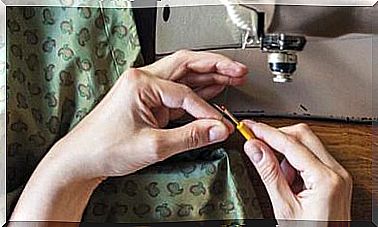Physical Exercise To Prevent Alzheimer’s
Physical exercise is essential to maintain an agile mind and prevent diseases associated with aging such as Alzheimer’s or dementia

It has been seen that sport can help prevent some diseases, such as Alzheimer’s, Parkinson’s, cognitive disorders or depression, and that it could even alleviate the effects of hyperactivity, attention deficit syndrome or schizophrenia.
But why does this relationship between neurons and sport occur? Well, surely, some scientists think, the answer lies in evolution. Thousands of years ago, our ancestors had to walk long distances in search of food; they had to flee from predators, hunt. That involved a great deal of daily exercise.
“It is part of our existence. We even have genes for exercise,” says researcher Gómez-Pinilla. And it is that just when our brain was just forming, exercise had a direct action on it, especially in the regions related to cognition. “And when two functions evolve like this, so closely linked, it is difficult to separate them”, adds Gómez-Pinilla.
However, just because we have a body and mind formed from sport and that need movement to function well, it does not mean that human beings are active. Rather, the opposite: each time we move less and we are more sedentary.
This loss of locomotion could explain, scientists believe, some diseases such as Alzheimer’s, for which not practicing any exercise is considered one of the risk factors. In fact, sedentary lifestyle is also related to depression, schizophrenia, bipolarity, and even a lack of empathy.
The key: a molecule called BDNF
Every time we contract and relax our muscles, such as when we climb stairs, throw a ball, or pedal a bicycle, the muscles secrete a series of chemicals that they send to the brain. Among them is the IGF-1 protein.
Once it reaches the brain, it causes the production of other molecules, known as neurotropic factors. And these factors, a kind of neuronal fertilizers, are responsible for protecting cells against disease or damage ; they drive them to grow and multiply; and strengthen the connections between neurons and other nerve cells.
Among all these factors, there is one that plays a major role in improving communication between neurons: BDNF. It is a protein and is highly involved in the formation of the entire nervous system of the fetus, of all those circuits that will later be responsible for cognitive functions.
In adulthood, it is also responsible for stimulating the production of new brain cells in the hippocampus – a seahorse-shaped region that deals with memory and learning -, as well as densifying the connections between neurons; Today, it is known that these connections are much more important than the number of nerve cells that we have.
Thus, those brains that have higher levels of BDNF are more prepared and have a greater capacity to assimilate new knowledge. Hence, this molecule is key to keeping the mind fit, slowing down aging and even reversing the aging process to some extent.
Is any sport good for taking care of the brain?
Not all sports are suitable for cultivating neurons. Those that are made to muscle or shape the figure hardly cause any effect on the brain. Scientists have seen that aerobic exercise is required, such as playing soccer or tennis, cycling, running, swimming.
“A sport is required that increases blood flow in the brain and triggers the production of BDNF in certain areas. This will make them more plastic, more sensitive to the changes that we want to introduce later with the learning sessions,” says Fernando Gómez -Pinilla, a neuroscientist at the University of California and one of the biggest advocates of the benefits of sport on mental health.
For David Costa, from the Department of Psychobiology of the Faculty of Psychology of the Autonomous University of Barcelona (UAB), “with the BDNF it is achieved that these circuits are more ductile and through learning we can model them better and learn more”. Although it is known what type of exercise is necessary, it is still unknown how much it is necessary to do so that the levels of this protein begin to increase.
Playing sports leaves a mark on the brain
As we move, BDNF levels rise in the brain, but when we stop exercising, they drop back to normal levels.
The fascinating thing is that if after a while we return to practicing some type of sport, we recover those levels sooner than if we do little or no sport. It is as if the brain retains a certain memory and, although it does not maintain BDNF levels, it does retain expectation. Thanks to that, it recognizes the situation beforehand and triggers the mechanisms quickly.
One of the important things that has also been discovered is that the brain, like the ant in Aesop’s fable, accumulates. As if it were a bank, it stores all the benefits that sport brings.
“Many people will wonder why you want to improve their intellectual abilities even more, if it stimulates your mind by reading and study He points Coast, the UAB-. Well, sports will help them when they have a problem, and be it an injury, a disease, or simply coping with the deterioration of aging. “
And it is that those reserves that we keep in our neurons come into operation when we need them, as if they were an extra battery. That has given a clue to many scientists, who see sport as a tool to treat certain diseases and injuries.
Exercise to prevent or reverse brain deterioration
In fact, a team from the Higher Council for Scientific Research (CSIC) conducted a study with mice that suffered from a disease very similar to Alzheimer’s.
The CSIC scientists saw that those mice that were in a moderate phase of the disease and that had practiced exercise for a longer time continuously, obtained better results in all the psychomotor tests, as well as memory and learning ; In addition, they presented less anxiety in stressful situations and were able to better control the response to startles.
In contrast, those who had not done any exercise presented psychological symptoms of dementia and cognitive loss, alterations in some mechanisms that influence memories and learning, as well as worse sensory and motor function.
Moving is also beneficial in preventing Parkinson’s ; in fact, it is known that those people who exercise moderately each day are less likely to develop it. And by moderate exercise we mean, for example, walking one hour a day.
It is even believed that it could be applied to reverse some of the devastating consequences of brain damage caused by trauma, since sport has been shown to speed up recovery in animals with spinal cord damage by increasing the emission of chemicals They help communication between damaged cells.
However, despite the many benefits of sport and its close relationship with neurons, it must be remembered that it is not the only factor that determines mental health. Brain functions are extremely complex, and genetics, for example, also influence, which is what marks the range within which our capacity will develop.
It is about trying to cultivate the mind from several fronts. If a lot of exercise is practiced, the mental plastic capacity will be favored, the neurons will be more and better connected and that will facilitate the cognitive processes. But it is also necessary to stimulate the mind intellectually. Otherwise, it is as if the soil from a pot is fertilized but without putting any seeds: we will have a fertile soil from which nothing will grow.
Similarly, if a seed is planted but not watered or fertilized, the plant will sprout small; intellectual work without any exercise also bears little fruit.
“The ideal – considers the psychobiologist David Costa – is to carry out intellectual work and practice sports regularly so that this work bears more fruit”. That is perhaps the formula for good mental health. If the body is abandoned, the brain will follow.
More sport since childhood
Sport favors brain development. Encouraging it in children is one way to contribute to their health and happiness.
Better school performance
Most studies on the benefits of exercise for the brain tend to focus on older people, who begin to notice that their cognitive abilities are deteriorating. However, the effects of sport are not limited to that group.
In children, for example, it exerts an enormous influence, since their brains are still developing. Various investigations have been carried out with primary school students and it has been found that those who practice sports, such as basketball, soccer or swimming, several times a week, achieve better academic performance than those who lead a more sedentary life.
More concrete skills
Sport accelerates executive functioning and also expands a series of skills ranging from mathematics to logic to reading, which are handled by different areas throughout the brain. Hence, many doctors claim that children in schools dedicate more hours to exercise.
Sport as therapy
It has also been seen that sport can also be applied therapeutically.
In the United States, it is beginning to be tested as a complement and even as a substitute, in some cases, for drugs to treat children with attention deficit syndrome (ADD). In them, the hippocampus is larger than usual and connects abnormally with other parts of the brain, affecting its functions.
With sport, as the connection of neurons – the synapses – is stimulated, it is possible to stimulate other brain areas that support learning.
A sunny Sunday dawns. The light filters through the window and gives you energy, little by little. You put on your sports clothes and decide to go for a run in the park. An unbeatable remedy to start the week with the best possible mood and recharged batteries.
You come across other people who have also used the morning to do some exercise. A family plays ball; a couple from there also jogs, like you; and along the promenade, many people come and go by bicycle or rollerblading. When finished, you sit down to rest and, then, you are overwhelmed by a huge sense of pleasure and well-being.
Exercising makes us feel good. It generates alpha waves of satisfaction in the brain, like when we hug a loved one, enjoy reading, meditate or contemplate a landscape of breathtaking beauty.
Sport is comforting, it makes us be in a better mood, happier and more energetic; and it is one of the best natural antidepressants.
Walking, swimming, cycling, strengthens the immune system and is beneficial for bones and muscles. By moving regularly, we take care of the heart, avoid cholesterol, hypertension and even certain types of cancer.
Mens healthy in healthy body
Now, in addition, science has been able to show that exercising is crucial to having a strong and healthy mind, something that the Greeks and Romans already intuited.
In Ancient Greece, for example, practicing exercise was almost as important as cultivating oratory or astronomy. And Seneca, the philosopher, prescribed it to his students as a way to maintain good physical and intellectual health.
Two thousand years later, the development of molecular biology and imaging techniques have allowed us to see that every time we exercise, new neurons are generated in some regions of the brain, something that until just two decades ago was believed impossible.
Also, that when we move regularly, the connections between nerve cells are densified ; that makes communication between them faster and more efficient, and better prepares us to learn and remember.
Omega-3, brain food
In addition to sports, the brain requires a varied and balanced diet to stay healthy.
An essential nutrient for the brain is omega-3 fatty acids, particularly EPA and DHA. Its consumption protects functions such as memory and learning, while its deficiency has been associated with depression and cognitive decline.
Some vegetables – walnuts or flax seeds – provide alpha-linolenic acid, which the body uses partially to synthesize EPA and DHA.
It is recommended to take 650 mg of EPA and DHA a day, and a minimum of 100 mg.
To know more…
- How the brain works , by Francisco Mora (Editorial Alliance)
- To each his brain. Neural and unconscious plasticity , by François Asermet and Pierre Magistretti (Katz Editores)









